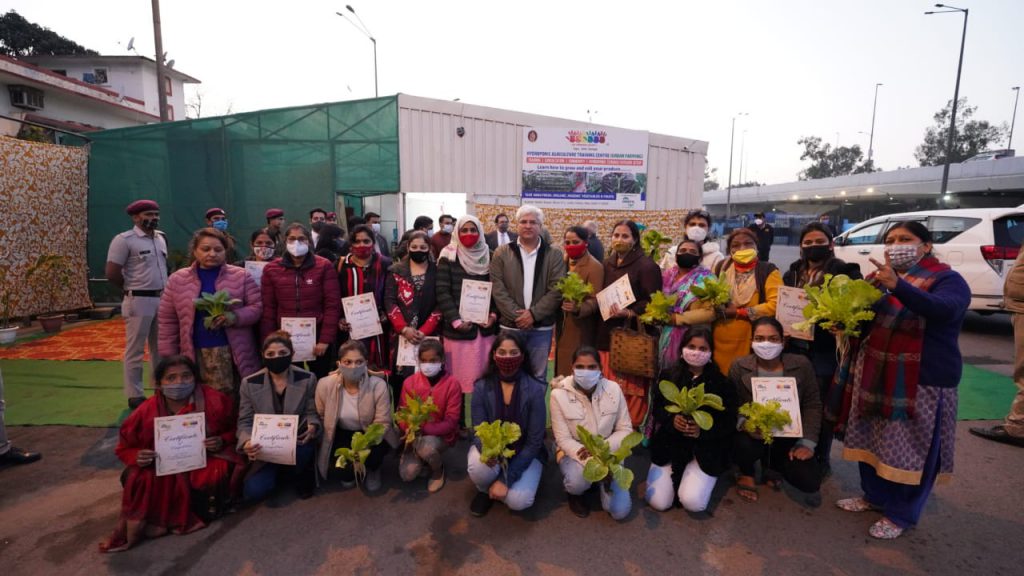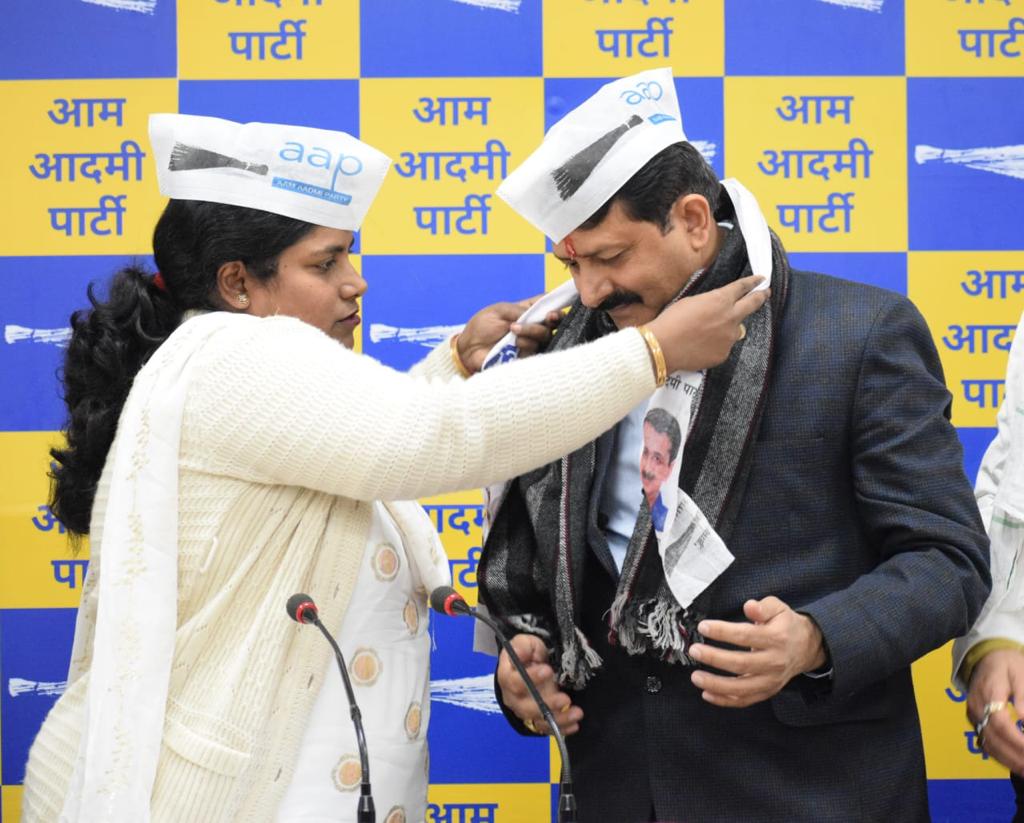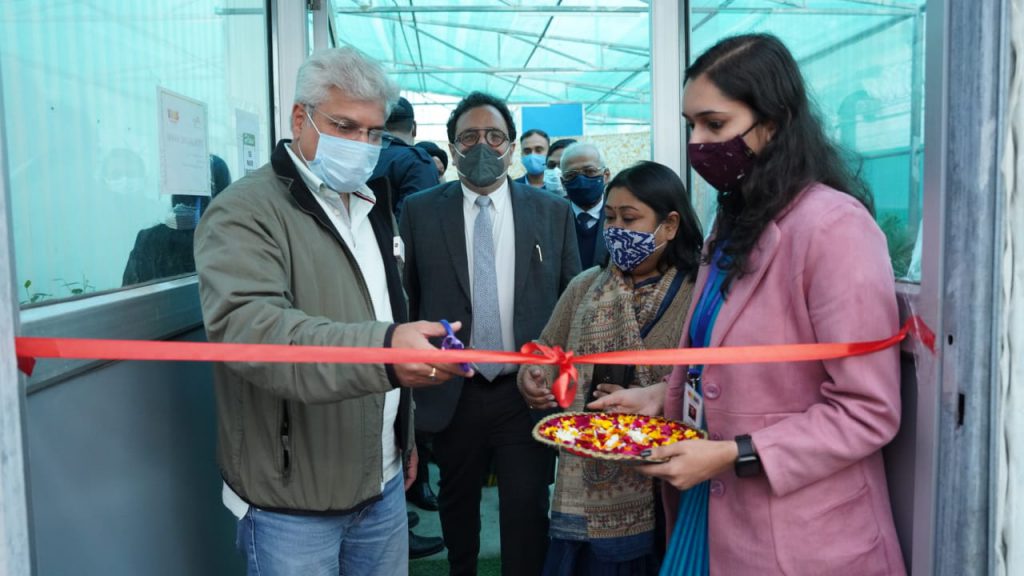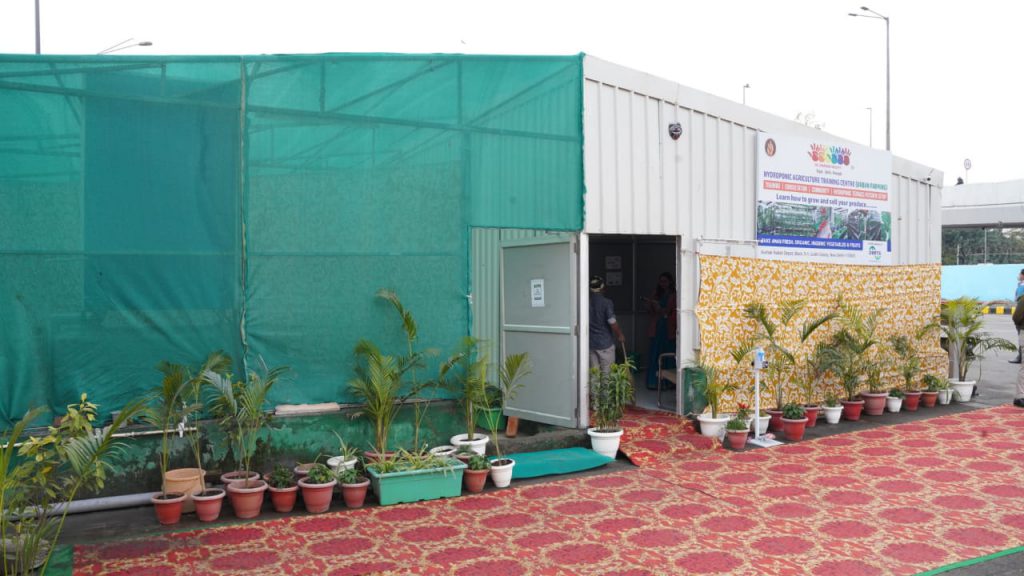The Hydroponics Horticulture and Training Facility is a unique initiative by the Delhi Government, especially with our reducing land cover for utilization and depleting resources- Kailash Gahlot
We are doing all we can to ensure least harm to the environment and preserve our resources, including adopting smart farming methods- Kailash Gahlot
The workforce we’re deploying for this is an all women army & PwDs, who are getting trained not just in using the technology, but also soft skills and marketing skills- Kailash Gahlot
The crops will provide a livelihood to more women in turn who can adopt this technology in smaller scales within their backyards- Kailash Gahlot
Transport Minister Kailash Gahlot distributed certificates to the first batch of women being trained at the facility
The Hydroponics Horticulture and Training facility at Kushak Nallah Depot has been funded by DIMTS under CSR Scheme




New Delhi:
Transport Minister of Delhi Shri Kailash Gahlot today visited the Hydroponics Horticulture and Training Facility developed at Kushak Nallah Cluster Bus Depot by Transport Department, Government of NCT of Delhi. During the visit, the Minister also distributed certificates to the first batch of women being trained at the facility. The facility includes a training, production and harvesting center and trains women in commercial utilization of these crops as livelihood generators once necessary sanctions get approved. This will be another major step in creating more end to end employment solutions for women & Person with disabilities (PwDs) and create more women entrepreneurs.
Hydroponics is a type of horticulture/ farming which involves growing plants without soil, by using mineral or nutrient solutions. Hydroponics offers many advantages, notably a decrease in water usage in agriculture. This employs a method of soil less farming which requires minimum space. The said facility was sanctioned during the Financial Year 2020-2021 as a part of Corporate Social Responsibility (CSR) which was funded by DIMTS under CSR Scheme.
Features of Hydroponics Horticulture and Training Facility at Kushak Nallah Depot:
Training Facility to provide end-to-end employment for women entrepreneurs
The training was for the time period of 8 weeks (Nov 2021- Dec 2021) where 20 girls/women were provided training. This batch includes girls from the age group of 18yrs to 50 yrs. During the training various techniques and verticals of the hydroponic technology were taught to the female trainees along with the soft skills and marketing skills.
Production & Harvesting
Sai Swayam Society, a registered NGO has already started harvesting of all leafy vegetables such as iceberg lettuce, bokchoy, parsley, rocket leafs, and this is expected to give a total harvest of 200Kg.
Employment generation
The NGO is also working on the project where in 60% of the trainees will be further employed as hydroponic trainers, after required training to be conducted in February, in a unique project by Education department, Delhi Government.
The NGO has applied for the FSSAI certification which is in process, after which these crops will also be sold commercially and provide as a source of support to these women. Further affiliation with Agriculture Skill Council of India (ASCI), which is in process, will also provide ASCI certification to the trainees which will be the unique in entire Delhi NCR.
Speaking after the visit, Shri Kailash Gahlot said ‘This is a unique initiative by the Delhi govt, especially with our reducing land cover for utilization and depleting resources. We are doing all we can to ensure least harm to the environment and preserve our resources, including adopting smart farming methods. Hydroponics is a technology which improves efficiency in water consumption and protects soil and land as a resource. Another noteworthy is that the manpower we’re deploying for this is an all women army and PwDs, who are getting trained not just in using the technology, but also soft skills and marketing skills. The crops will also provide a livelihood to more women in turn who can adopt this technology in smaller scales within their backyards.’
